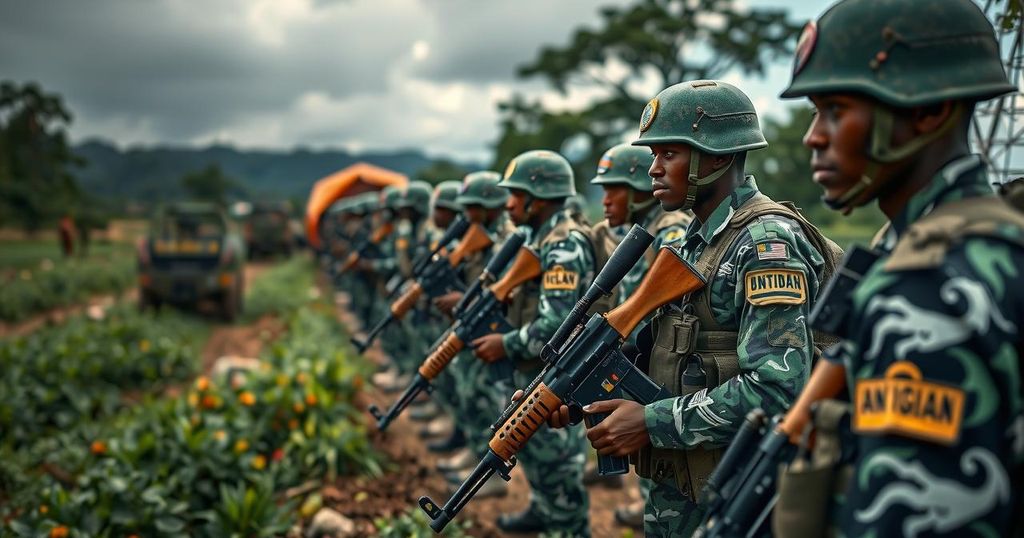The Dilemma of UN Peacekeepers in the DRC: A Battle for Resources and Stability
The Democratic Republic of the Congo (DRC) seeks to expel UN peacekeepers amidst escalating violence from Rwandan-backed rebels, particularly M23. Despite calls for withdrawal, increasing conflict complicates peacekeeping and endangers civilian safety in mineral-rich eastern DRC, highlighting a dire security situation influenced by local and foreign interests in the region’s resources.
The Democratic Republic of the Congo (DRC), besieged by armed conflict largely fueled by its vast mineral wealth, is caught in a complex web of political and military strife. The United Nations peacekeeping force, known as MONUSCO, which has operated in the DRC for over two decades, faces increasing frustration from both the Congolese government and its citizens, many of whom are calling for its withdrawal despite the rising violence from Rwandan-backed rebel groups such as M23. This difficult situation is further aggravated by the presence of multiple armed factions, foreign mercenaries, and ongoing instability in the eastern regions rich in minerals essential for a global economy reliant on electronics and electric vehicles. Originally expected to withdraw by December, the United Nations peacekeepers are compelled to extend their mission due to heightened violence. The DRC’s eastern regions host a plethora of armed groups, with M23 being supported by Rwanda—an allegation that Rwanda denies. In light of this, localized militia groups have also risen in an attempt to protect civilians from the various threats in the area. While MONUSCO has shifted its approach to enhance defensive measures, the local population remains skeptical of its effectiveness, evidenced by numerous public protests against the peacekeeping force. The conflict’s impact on civilians is dire, with hundreds of thousands displaced from their homes, exposed to dangers from both militia violence and limited security. The deteriorating security environment raises pressing concerns about the U.N.’s ability to transition responsibilities back to the Congolese authorities. The international community, alarmed by the potential for a security vacuum, cautions against the U.N. withdrawal until a credible plan is established. Moreover, the allure of the DRC’s mineral wealth complicates the situation, as groups vie for control over lucrative resources, fuelling ongoing violence and instability.
The situation in the Democratic Republic of the Congo, particularly in the eastern regions, is characterized by enduring armed conflict and instability primarily related to its abundant mineral resources. The United Nations peacekeeping mission, MONUSCO, was deployed to help stabilize the region over two decades ago. However, recent developments have shown a pivotal shift in both public sentiment and governmental positions toward the peacekeepers, who now face criticism for their inability to contain the violence and protect civilians amid ongoing rebel activities. The DRC’s mineral wealth, which includes critical elements such as cobalt and tantalum, attracts international interest, complicating the political and military dynamics at play.
In summary, the Democratic Republic of the Congo finds itself in a precarious position as it grapples with the simultaneous demands for the withdrawal of U.N. peacekeepers amidst an escalation of violence fueled by armed groups, particularly the Rwandan-backed M23 rebels. The situation is aggravated by the vast mineral resources that attract both local and international interests. The interplay between local militias, internal politics, and the presence of international forces creates a complex security environment that poses significant challenges for the Congolese government and the civilian population. As calls for a re-evaluation of the peacekeeping forces emerge, the potential for a security vacuum looms large, raising urgent questions about the future stability of the region.
Original Source: apnews.com




Post Comment